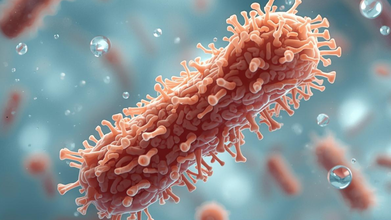- Health Conditions A-Z
- Health & Wellness
- Nutrition
- Fitness
- Health News
- Ayurveda
- Videos
- Medicine A-Z
- Parenting
Skincare For Men: 3-Step Simple Yet Effective Routine To Follow

Men skincare routine (Credit: Canva)
As someone who once found skincare overwhelming, Amulya, realized that simplicity is key. With the help of a friend he committed to a basic routine—cleanse, moisturize, and protect and ever since he has seen his skin transform with no marks and oil-free texture. With little help he understood that consistency can enable a a holistic skin health which can make all the difference.
It's never too late to establish the best skincare routine for men or refine the one you already have. Developing a skincare routine is an investment in both your health and self-confidence. However, many men find the idea of skincare overwhelming, akin to a treasure hunt without a clear map.
But the secret to great skin isn’t elusive—it’s a daily practice, much like regular exercise or eating well. Think of skincare as another essential aspect of your overall health.
This guide aims to help you discover the best skincare routine by explaining the essential steps and the key ingredients you need to look for. Whether you're just getting started or refining your routine, these insights will set you on the right track.
Start with the Basics: Cleanse, Moisturize, Protect
Every men's skincare routine should consist of three essential steps: cleansing, moisturizing, and protecting. While the products may differ based on your skin type, these steps are universally important. You don’t need a cabinet full of expensive products—what matters most is choosing the right ones for your skin and using them consistently.
Identify Your Skin Type
Before diving into a skincare routine, it’s essential to understand your skin type. This helps you avoid using the wrong products, which could irritate or worsen your skin condition.
How to Determine Your Skin Type at Home?
1. Wash your face to remove any products or oils.
2. Wait for 30 minutes, allowing your skin to return to its natural state.
3. Observe your skin:
- If it feels tight or flaky, you have dry skin.
- If it appears shiny, you likely have oily skin.
- If it's red or irritated, your skin might be sensitive.
- If you notice both oily and dry areas, you have combination skin.
Once you’ve identified your skin type, you can structure your routine to meet its specific needs.
Step 1: Cleanse
Cleansing is the first and most critical step of any skincare routine. Whether it's morning or night, a good cleanser removes sweat, bacteria, and other products from the skin. This process ensures that subsequent skincare products penetrate effectively, maximizing their benefits.
Recommended Cleansers by Skin Type:
- Oily skin: Opt for a deep pore-cleansing face wash with active charcoal. This helps remove excess oil and impurities.
- Dry skin: Choose a gentle cleanser with hydrating ingredients like vitamin E, squalane, and other repairing agents. These will cleanse without stripping your skin of necessary moisture.
Consistent cleansing, morning and night, is key to maintaining a clean and healthy complexion.
Step 2: Moisturize
Moisturizing is the next critical step, no matter your skin type. Both our skincare experts recommend applying a moisturizer twice a day to keep your skin hydrated and nourished. This step ensures that your skin remains supple and protected against environmental stressors.
Why Moisturizing Matters?
- For dry skin, a rich, hydrating formula can provide much-needed moisture.
- For oily skin, a lightweight, oil-free moisturizer prevents overproduction of oil by keeping the skin hydrated.
Consistency is key here. Using a moisturizer every morning and evening will ensure your skin stays hydrated and healthy over time.
Step 3: Protect
The final step in any skincare routine is protection. An SPF product is essential to shield your skin from the damaging effects of UV rays, which can lead to premature aging and even skin cancer. This is a crucial step year-round, regardless of the weather.
Tips for Choosing the Right SPF:
- Look for a dedicated face sunscreen, rather than relying on moisturizers with SPF. Dermatologists recommend a light, non-greasy, fragrance-free SPF designed specifically for the face. The best SPF for daily use is one that leaves no residue and doesn’t feel heavy on the skin.
Using SPF daily is one of the most powerful ways to prevent skin damage and aging, making it an essential part of your routine.
Just focus on these three fundamental steps, you’ll be ahead of most men when it comes to skincare. As you become more comfortable with your routine, you can introduce additional products like serums or exfoliants.
Additional Tips for a Healthy Complexion
Exfoliation, while not an everyday step, exfoliation helps remove dead skin cells and keeps your skin smooth. Use an exfoliant once or twice a week, depending on your skin type. For oily skin, a product containing salicylic acid can help prevent clogged pores. For dry skin, look for gentle exfoliants that won’t cause irritation.
Hydration, in addition to applying a moisturizer, staying hydrated by drinking plenty of water is crucial for maintaining healthy skin. Dehydrated skin often looks dull and is more prone to irritation.
Consistency is key, whatever routine you decide to follow, the most important aspect of skincare is consistency. Regularly cleansing, moisturizing, and protecting your skin will lead to visible results over time. There’s no magic product that works overnight—it’s about committing to daily care.
Skincare doesn’t need to be complicated or expensive to be effective. Focus on the basics—cleanse, moisturize, and protect and you can create a routine that fits seamlessly into your daily life. Investing in your skin is an investment in your health and confidence, and it’s never too late to start.
Cutting Back on Sugary Drinks Can Improve Teen Anxiety

Credit: Canva
A new study suggests that drinking sugary drinks can increase anxiety, among other mental issues, in adolescents by 34 percent.
Sugary drinks are known to be more harmful due to their low fiber, protein, or fat, which typically slow down digestion in solid foods. This means liquid sugar gets into your bloodstream very quickly, causing a sudden jump in blood sugar and insulin levels.
Hyper-fast intake of such drinks can also make it hard for your liver to process the sugar, especially the fructose part. n large amounts, fructose turns into fat in your liver. This buildup of fat is linked to metabolic problems that lead to Type 2 diabetes.
Apart from this, a Bournemouth University, UK literature review analyzed people aged between ten and 19 who drank fizzy drinks, colas, sweetened fruit juices, sweetened milk drinks, energy drinks, and sweetened tea or coffee and found multiple links between the beverages and anxiety diagnosis.
The gut-brain axis — the connection between the brain and the gut — may help explain the link between sugary drinks and anxiety. But gut health is influenced by many factors, including diet, stress, and sleep, which are also linked to anxiety.
Overall, the study suggests that cutting back on sugary drinks could help support teenagers’ mental health. While many studies have looked at how reducing sugary drinks improves physical health, more research is needed to see if it also benefits mental health.
READ MORE: Smoking Cannabis Can Lead To Mental Illnesses In Teenagers, Study Finds
WHO Asks Countries To Tax Sugary Drinks
The World Health Organization is asking countries across the world to increase taxes on sugary drinks and alcohol to reduce cases of chronic conditions such as Type 2 diabetes, obesity, heart disease and fatty liver.
In a January 13 virtual conference, WHO Director-General Dr Tedros Adhanom Ghebreyesus said: "Health taxes have been shown to reduce consumption of these harmful products, helping to prevent disease and reduce the burden on health systems.
"At the same time, they generate an income stream that governments can use to invest in health, education and social protection."
According to a recent report on sugar-sweetened beverages taxes, at least 116 countries tax sugary drinks, including sodas or carbonated canned drinks, but other high-sugar products, such as 100 per cent fruit juices, sweetened milk drinks and ready-to-drink coffees and teas, escape taxation.
Additionally, another report on alcohol taxes shows that even though 167 countries levy taxes on liquor, wine and beer, alcohol has become more affordable or remained unchanged in price in most countries since 2022, as taxes do not get adjusted for inflation and income growth.
How To Cut Back On Sugary Drinks?
Sugary drinks can feel addictive. If you find yourself hooked, try to slowly reduce how much you drink, just like you would with alcohol or tobacco. It helps to plan ahead for when you usually crave a soda.
You can start by mixing plain sparkling water with an equal amount of fruit juice or soda. Then, week by week, slowly reduce the amount of the sugary drink until you're mostly just drinking sparkling water. If it helps, add a little lemon or lime juice for flavor.
Running Ultra-Marathons Harms Your Red Blood Cells, Study Says

Credit: Canva
Participating in ultra-marathons can cause damage to your red blood cells' flexibility and hamper their oxygen-carrying capacity, a study suggests.
A study published in the American Society of Hematology’s journal Blood Red Cells & Iron notes that extreme forms of exercise may harm, rather than support, overall health.
In the case of ultra-marathons, runners experience breakdown of normal red blood cells during races. Over time, their red blood cells become less flexible and potentially reduce their ability to efficiently carry oxygen, nutrients and waste products throughout the body.
Travis Nemkov, associate professor in the department of biochemistry and molecular genetics at the University of Colorado Anschutz and the study’s lead author said of the results: “Participating in events like these can cause general inflammation in the body and damage red blood cells.
“Based on these data, we don’t have guidance as to whether people should or should not participate in these types of events; what we can say is, when they do, that persistent stress is damaging the most abundant cell in the body.”
Red blood cells transport oxygen and waste throughout the body and must be flexible enough to squeeze through small blood vessels. When red blood cells become inflexible or rigid, they lose their ability to deform and navigate through the body's smallest vessels, leading to impaired oxygen delivery, blockage of blood flow, and rapid destruction by the body's filtration system.
This can lead to low hemoglobin and anemia which can pave the way for diseases like Sickle Cell Disease (SCD), thalassemia, hereditary spherocytosis, and, in some cases, the "storage lesion" of blood in transfusion banks.
READ MORE: Ultra Marathoner Sufiya Sufi Runner: The Woman Who Set 5 Guinness World Records
What Is Low Hemoglobin?
Hemoglobin is the oxygen-carrying protein in red blood cells. Adequate hemoglobin levels are essential for keeping organs and tissues properly supplied with oxygen. Without enough of it, the body begins to struggle to meet its basic energy needs.
Low hemoglobin is usually identified through a blood test. It is most often measured as part of a complete blood count (CBC), which checks different components of the blood, including red and white blood cells and platelets, as per Healthline.
While exact reference ranges can vary slightly between laboratories, healthy adult hemoglobin levels usually fall within the ranges listed below. These values are different for babies, children, and teenagers:
- Normal Hemoglobin Count in Grams per Deciliter (g/dL) | Normal Hemoglobin Count in Grams per Liter (g/L)
- Adult Males: 13.8–17.2 | 138–172
- Adult Females: 12.1–15.1 | 121–151
Any reading below these ranges in adults is considered low hemoglobin and suggests that oxygen delivery in the body may be reduced, as per Mayo Clinic.
Is Low Hemoglobin Ever Dangerous?
Low hemoglobin is not always an emergency. In many cases, it develops gradually and can be managed with treatment. That said, very low levels can be dangerous. A hemoglobin level below 5.0 g/dL has been linked to serious complications, including heart failure and even death. Levels under 6.5 g/dL may be considered life-threatening and require urgent medical care.
What Causes Low Hemoglobin?
One of the most common reasons for low hemoglobin is anemia. Anemia occurs when the body does not have enough healthy red blood cells. The most frequent type is iron-deficiency anemia, which develops when the body lacks enough iron to produce hemoglobin.
Other forms of anemia include pernicious anemia, which occurs when the body cannot properly absorb vitamin B12, and hemolytic anemia, where red blood cells are destroyed faster than they are produced.
Low hemoglobin can also be caused by:
- Blood loss or internal bleeding
- Certain cancers, including leukemia, lymphoma, multiple myeloma, and cancers that spread to the bone marrow
- Chronic kidney disease
- Deficiencies of folate or vitamin B12
- Hypothyroidism
- Liver disease
- Poor nutrition or malnutrition
- Myelodysplastic syndrome (MDS)
- Sarcoidosis
- Sickle cell disease and other inherited blood disorders
- Systemic lupus erythematosus
- Thalassemia, a genetic condition that reduces hemoglobin production
- Excess fluid in the body
- Cancer treatments such as chemotherapy and radiation can also lower hemoglobin levels, particularly in adults over the age of 65.
What Does Having Low Hemoglobin Feel Like?
Some people with mildly low hemoglobin may not notice any symptoms at first. Others may begin to feel unwell as levels drop further or remain low over time. Common signs and symptoms include:- Feeling dizzy or lightheaded, sometimes fainting
- Muscle weakness
- Ongoing fatigue or low energy
- Pale or washed-out skin
- Frequent headaches
How Is Low Hemoglobin Treated?
Treatment depends entirely on what is causing the low hemoglobin. A healthcare provider will first identify the underlying reason before recommending treatment. Possible treatment options include:
- Blood transfusion: If hemoglobin is low due to heavy blood loss, a transfusion may be needed to restore levels quickly.
- Vitamin supplements: When nutritional deficiencies are the cause, iron, folate, or vitamin B12 supplements are often prescribed. Hemoglobin levels usually begin to improve within six to eight weeks.
- Intravenous (IV) therapy: In cases where iron or B12 levels need to be raised rapidly, IV infusions may be recommended.
- Bone marrow transplant: This may be required when low hemoglobin is linked to certain cancers or bone marrow disorders.
If a long-term illness is responsible, managing that condition becomes the key part of treatment, alongside monitoring hemoglobin levels regularly.
Danish Study Links Hidden Bacteria In The Gut To Colorectal Cancer

Researchers from Denmark and Australia have discovered a new virus in the gut that can contribute to the development of colorectal cancer in the body, one of the leading causes of death in the world.
Using genetic sequencing, researchers studied the gut bacteria of cancer patients in a large Danish study and found that Bacteroides fragilis, an anaerobic, gram-negative, pleomorphic to rod-shaped bacterium, often carried a bacteriophage — a virus that infects and reproduces inside bacteria.
This allows it to produce a toxin (BFT) in the colon, promoting chronic inflammation, cell proliferation and tumor growth in the region.
People with colorectal cancer were twice as likely to have this bacteriophage in their gut bacteria. The virus also appears to be previously unknown and does not match any recorded type so far.
Although the first finding came from a small group, it was later confirmed in a larger study of 877 people with and without colorectal cancer. The results suggest that viruses hiding inside B. fragilis may play a role in cancer development.
Microbiologist Flemming Damgaard, from Odense University Hospital in Denmark: "It has been a paradox that we repeatedly find the same bacterium in connection with colorectal cancer, while at the same time it is a completely normal part of the gut in healthy people.
"We have discovered a virus that has not previously been described and which appears to be closely linked to the bacteria we find in patients with colorectal cancer."
What Is Colon Cancer?
Colon cancer develops from polyps in the colon or rectum, often taking years to show symptoms. The cancer begins when small growths called polyps form on the inner lining of the colon or rectum. Over time, changes in the DNA of these cells can cause the polyps to become cancerous.
As abnormal cells multiply, they replace healthy cells and eventually form a mass known as a tumor. This process develops slowly, often taking up to ten years for a precancerous polyp to turn into cancer and begin showing symptoms.
The American Cancer Society notes that colorectal cancer impacts around 1.9 million people every year.. In India, it is the fourth most common cancer among both men and women. In 2022, there were 64,863 new cases and 38,367 deaths.
Projections suggest that incidence will continue to rise by 2026, reflecting both lifestyle changes and improved detection.
Colon cancer can be difficult to detect because it often develops without obvious symptoms. According to experts , these are the three things you should do to protect yourself:
1. Timely risk screening
2. Knowing your cancer family history
3. Acting on early symptoms
What Early Symptoms Should You Look Out For?
Colon cancer rarely announces its presence with dramatic symptoms. More often, it whispers — through changes in bowel habits, subtle abdominal discomfort, or unexplained weight loss.
Some of the most commonly missed early signs include:
- Persistent changes in bowel movements: Chronic constipation or diarrhea often dismissed as dietary effects.
- Blood in stool: Bright red or dark blood should not be ignored.
- Unexplained weight loss: Especially when unintentional.
- Abdominal cramps or bloating: Misinterpreted as common digestive issues.
Persistent changes in bowel habits, especially if they last more than a few days, must be taken seriously. Narrow or ribbon-shaped stools may indicate a tumor partially blocking the colon.
© 2024 Bennett, Coleman & Company Limited

